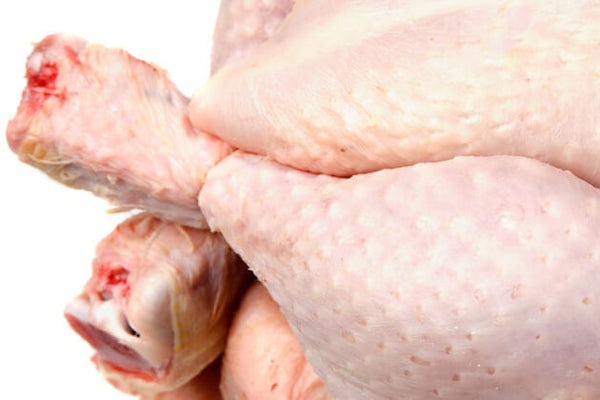Chlorinated chicken - a butchers view
By Sam Wass, Medium Well

Chlorinated chicken has been all over the news recently, and is becoming a hot topic in the Brexit debate, with both sides of the argument calling ‘fowl’ (did you see what we did there?). Putting politics aside, would you care if your chicken was chemically treated if it resulted in a 20% price reduction? It looks increasingly likely that consumers will soon have to make a choice of standards over price when buying bleached chicken, so we thought we’d give our butcher’s view on the debate.
Chlorinated chicken is essentially chicken that has been treated and bleached in the chemical chlorine after slaughter.
Chlorinated chicken is essentially chicken that has been treated and bleached in the chemical chlorine after slaughter. It is a controversial practice that has been banned in the UK since 1997 when the EU banned chlorine-washed chicken over food safety concerns.
It is now back on the food agenda as International trade secretary Liam Fox is in the US urging a rethink as to whether chlorinated chicken, should be made legal to ease the road to a quick post-Brexit trade agreement with the US. The UK don’t currently import chicken from the US despite it being the second largest producer in the world after Brazil, and with chicken retail prices some 20% cheaper than in the UK, it seems inevitable that any trade deal between the US and the UK will include chlorinated chicken.
The argument for the practice is that the solution is used to kill bacteria and it reduces the prevalence of salmonella. The main reason against, is that it encourages poor hygiene across the production process in farms and abattoirs as producers rely on the chemical to rinse the meat of harmful substances at the end of the slaughtering process. It should be added that chlorination is not believed to be harmful for consumption with both the USDA and EU food safety regulator EFSA saying it is safe when the chicken is eaten in moderation.
chicken farming in the UK follows “farm to fork” principles of reducing contamination at all stages of the production chain
In the UK welfare standards are much higher, with the chicken only washed with water and cool air. The approach to chicken farming in the UK follows “farm to fork” principles of reducing contamination at all stages of the production chain. It is not reliant on any one “get out of jail” solution at the end of the process, which is essentially what the chlorination is.
We are not saying chicken production in the UK is perfect (far from it), but it does get the balance of supply and demand right, giving the consumer access to relatively low cost chicken, with some of the highest welfare standards in the world. The simple reason why chicken is 20% cheaper when chlorination takes place after production is that it is cheaper to produce. There is less space, less treatment of disease and generally less animal husbandry. The magic bullet is fired at the end, and many bad things go away. We have been prophesying for a few years now, that chicken was on a race to the bottom, and it would appear the bar is now going to fall even lower.
The noises from politicians about what will happen to food hygiene and welfare standards post-Brexit are very confusing. On one-hand they say we will maintain our high welfare standards, but on the other hand we are looking to do trade deals with countries to encourage cheaper imports with lower welfare standards.
British farmers are the ones likely to suffer the most, they maintain some of the highest welfare standards in the world, but that doesn’t give the cheapest meat. It is a choice of standards over price, and ultimately you will decide what happens as a consumer.